The Company
Brainminer was founded in 2015 by the Academic inventors and UCLB, the business arm of University College London, with the purpose of commercialising the exciting new machine learning algorithms that have been created for brain analysis at UCL and elsewhere. You can find out more about the company's foundation here.
The company has received over £1M of funding from 2 SBRI awards in 2015 and 2016; and has also received an Innovate UK grant award as part of the KCL-based AI Centre for Value-Based Healthcare project.
The company’s first product, DIADEM, is CE marked and medically approved.
The company has received over £1M of funding from 2 SBRI awards in 2015 and 2016; and has also received an Innovate UK grant award as part of the KCL-based AI Centre for Value-Based Healthcare project.
The company’s first product, DIADEM, is CE marked and medically approved.
The Need
There are 850,000 people with dementia in the UK, with numbers set to rise to over 1 million by 2025. Worldwide there are currently 47 million sufferers.
Dementia is not a disease in itself, it is a word used to describe a group of symptoms. The most common forms include Alzheimer’s disease, Vascular dementia, Dementia with Lewy bodies and Frontotemporal dementia. Delivering the most appropriate therapy depends on a correct determination of the form of dementia, but this is often not easy.
More information (with a focus on Alzheimer's, especially in the USA) can be found on the Alzheimer's Association website.
In the UK, the Alzheimer's Society supports carers and families, while Alzheimer's Research UK supports medical research.
Dementia is not a disease in itself, it is a word used to describe a group of symptoms. The most common forms include Alzheimer’s disease, Vascular dementia, Dementia with Lewy bodies and Frontotemporal dementia. Delivering the most appropriate therapy depends on a correct determination of the form of dementia, but this is often not easy.
More information (with a focus on Alzheimer's, especially in the USA) can be found on the Alzheimer's Association website.
In the UK, the Alzheimer's Society supports carers and families, while Alzheimer's Research UK supports medical research.
Our Vision
Brainminer will improve the lives of patients worldwide by enabling imaging-based personalised treatment pathways.
While our first product analyses MR images to aid the diagnosis of dementia, our vision is to apply machine learning technology to a much wider range of brain diseases including MS and conditions such as stroke.
While our first product analyses MR images to aid the diagnosis of dementia, our vision is to apply machine learning technology to a much wider range of brain diseases including MS and conditions such as stroke.
Our Ethos
The algorithms we use are specialised for neurology. They are not off-the-shelf algorithms.
Our team has deep expertise in medical imaging, computational science and engineering. Brainminer is at the forefront of applied digital health.
Our team has deep expertise in medical imaging, computational science and engineering. Brainminer is at the forefront of applied digital health.
The Team
Ian Harris, CEO
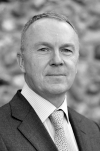
Ian Harris has broad experience of building early stage businesses in the life science and medical devices areas. Most relevantly, he was CEO of Cambridge Cognition between 2002 and 2010, a company which commercialised software developed within the University of Cambridge in the field of cognitive assessment and with applications in clinical trials, academic research and healthcare provision.
Richard Littlehales, Chairman
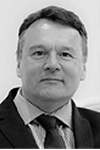
Richard Littlehales is a City trained FCA with broad corporate experience across multiple sectors, from start-ups to mature international businesses in both private and quoted company settings. Richard brings big corporate standards of management and governance to young entrepreneurial businesses with a focus on the commercialisation of innovation in the medical devices and diagnostics sectors.
Richard Miles, Chief Technical Officer
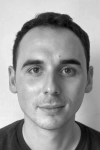
Richard Miles is responsible for delivering our CE marked products to clinicians. Richard has over a decade of experience writing software and previous experience working in both academia and clinical environments, having worked with patients and clinicians in the NHS for 3 years. He is a registered Clinical Scientist and his other qualifications include an MEng in Engineering and an MSc in Clinical Engineering.
The Founders
Sebastien Ourselin
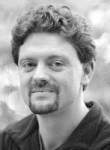
Prof Seb Ourselin is Head of the School of Biomedical Engineering & Imaging Sciences, King’s College London; dedicated to the development, translation and clinical application of medical imaging, computational modelling, minimally invasive interventions and surgery.
In collaboration with Guy’s & St Thomas’ NHS Foundation Trust (GSTT), he is leading the establishment of the MedTech Hub, located at St Thomas’ campus.
You can read his full profile here.
M Jorge Cardoso
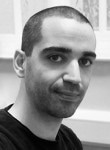
Dr Jorge Cardoso is a senior lecturer in artificial intelligence with applications to quantitative neuroradiology at Kings College London.
A key area of his expertise lies on the development of novel algorithms for imaging biomarker extraction. He is the main inventor of the geodesic information flow algorithm used in DIADEM.
You can read his full profile here.
A key area of his expertise lies on the development of novel algorithms for imaging biomarker extraction. He is the main inventor of the geodesic information flow algorithm used in DIADEM.
You can read his full profile here.
Marc Modat
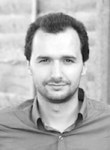
Dr Marc Modat is a senior Lecturer in Computational Imaging developing machine learning based solutions to tackle healthcare challenges.
He is an expert in medical image registration and the development of novel imaging biomarkers for neurodegenerative diseases.
You can read his full profile here.
He is an expert in medical image registration and the development of novel imaging biomarkers for neurodegenerative diseases.
You can read his full profile here.
Steven Schooling

Dr Steven Schooling is the Director of Engineering & Physical Sciences at UCL Business and is responsible for knowledge transfer activities across the faculties of Engineering, Mathematics and Physical Science and the Built Environment at UCL.
He has over two decades of experience of early-stage technology commercialisation having developed successful spin-off companies. He is currently a director of seven UCL spin-out companies and also represents UCL’s interests in two investment funds.
You can find out more here.
He has over two decades of experience of early-stage technology commercialisation having developed successful spin-off companies. He is currently a director of seven UCL spin-out companies and also represents UCL’s interests in two investment funds.
You can find out more here.
